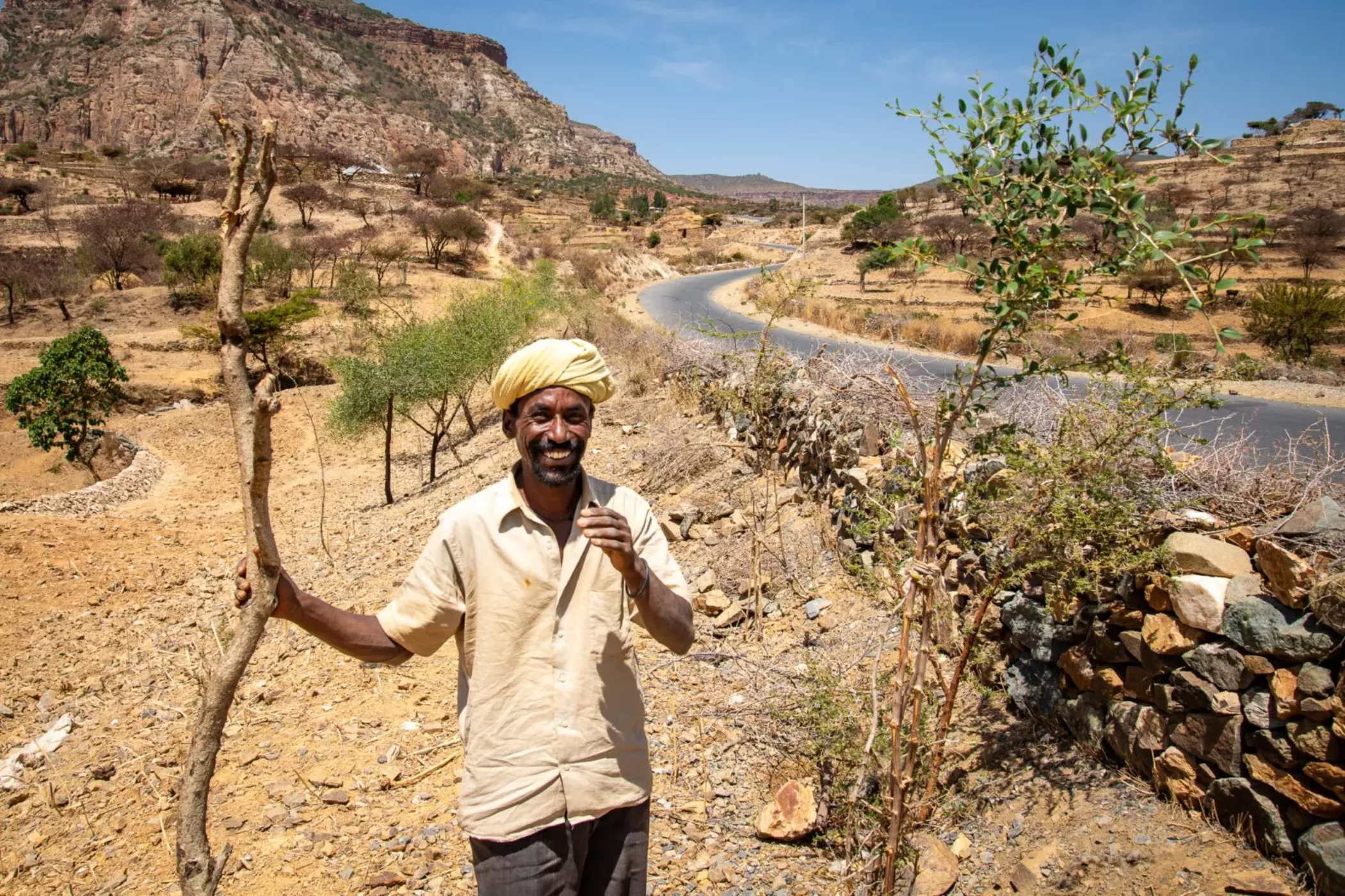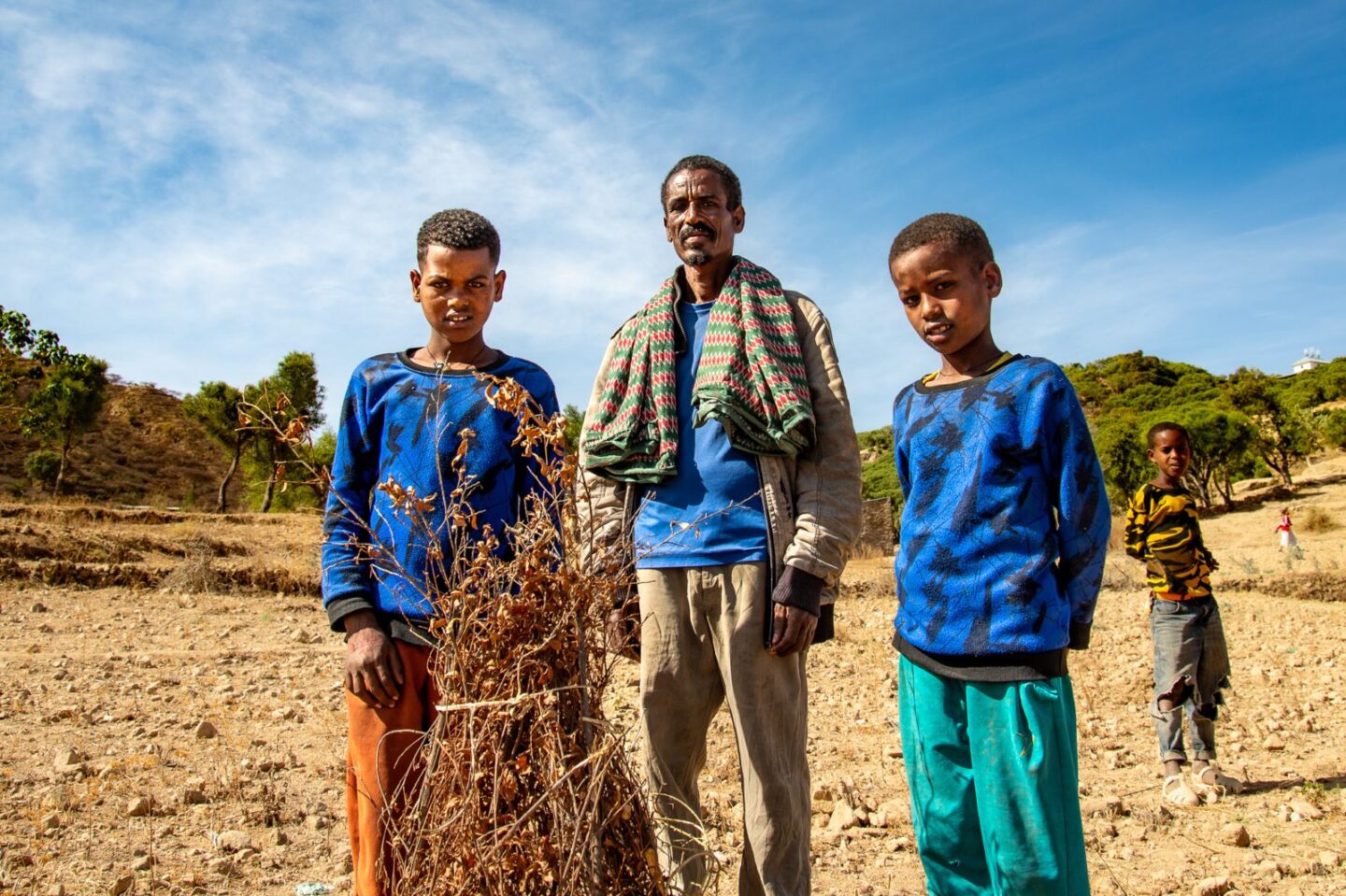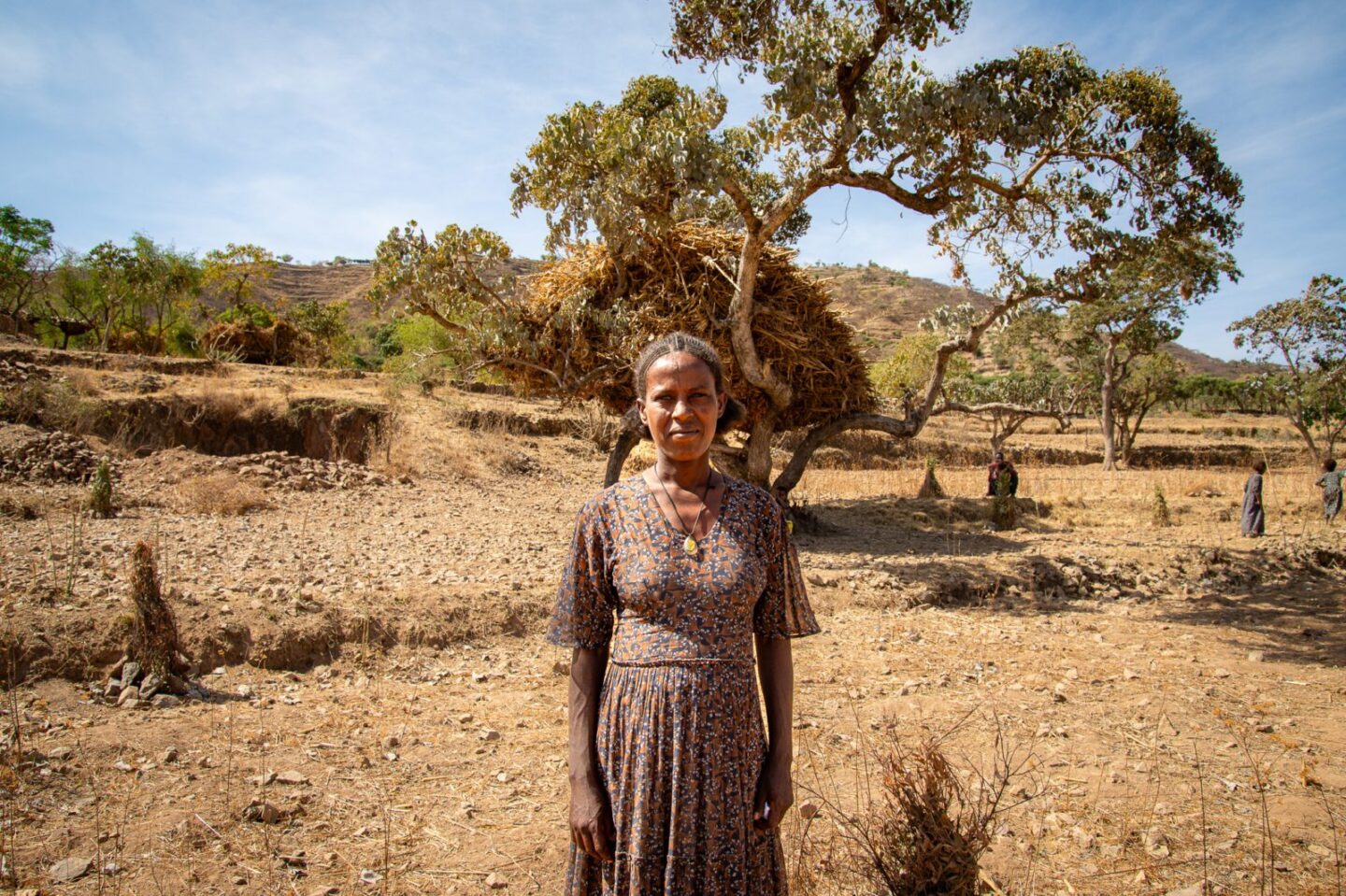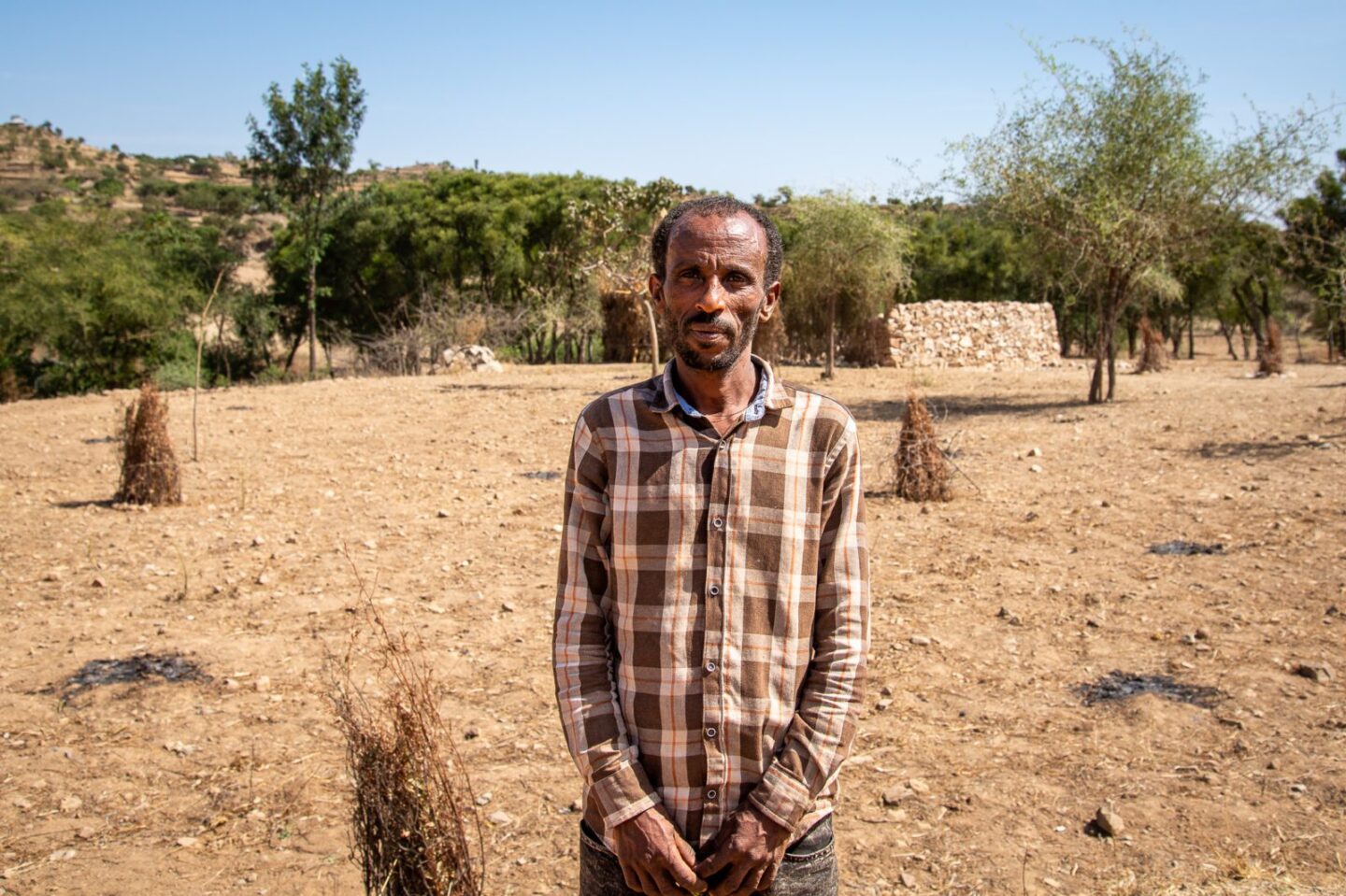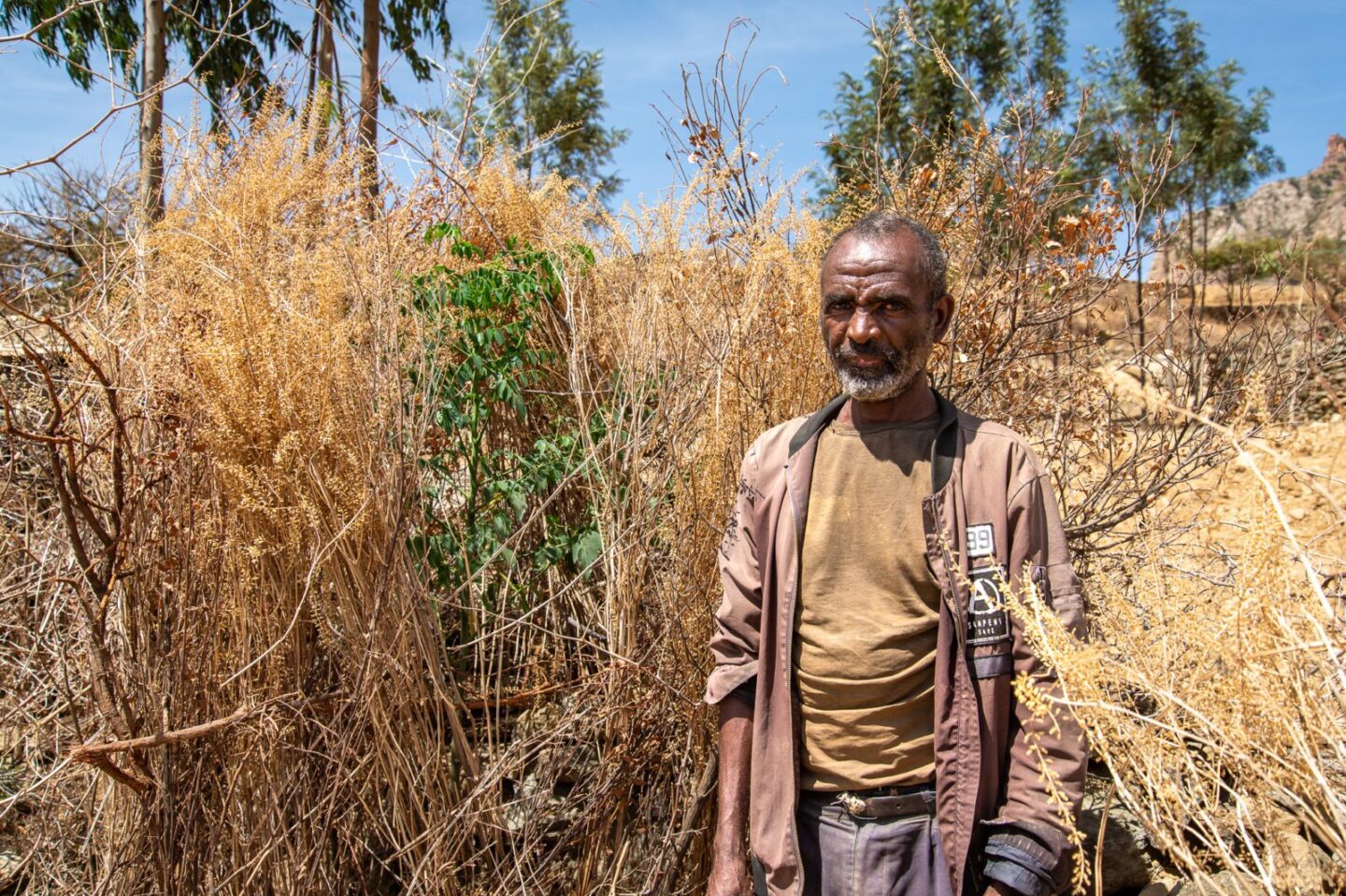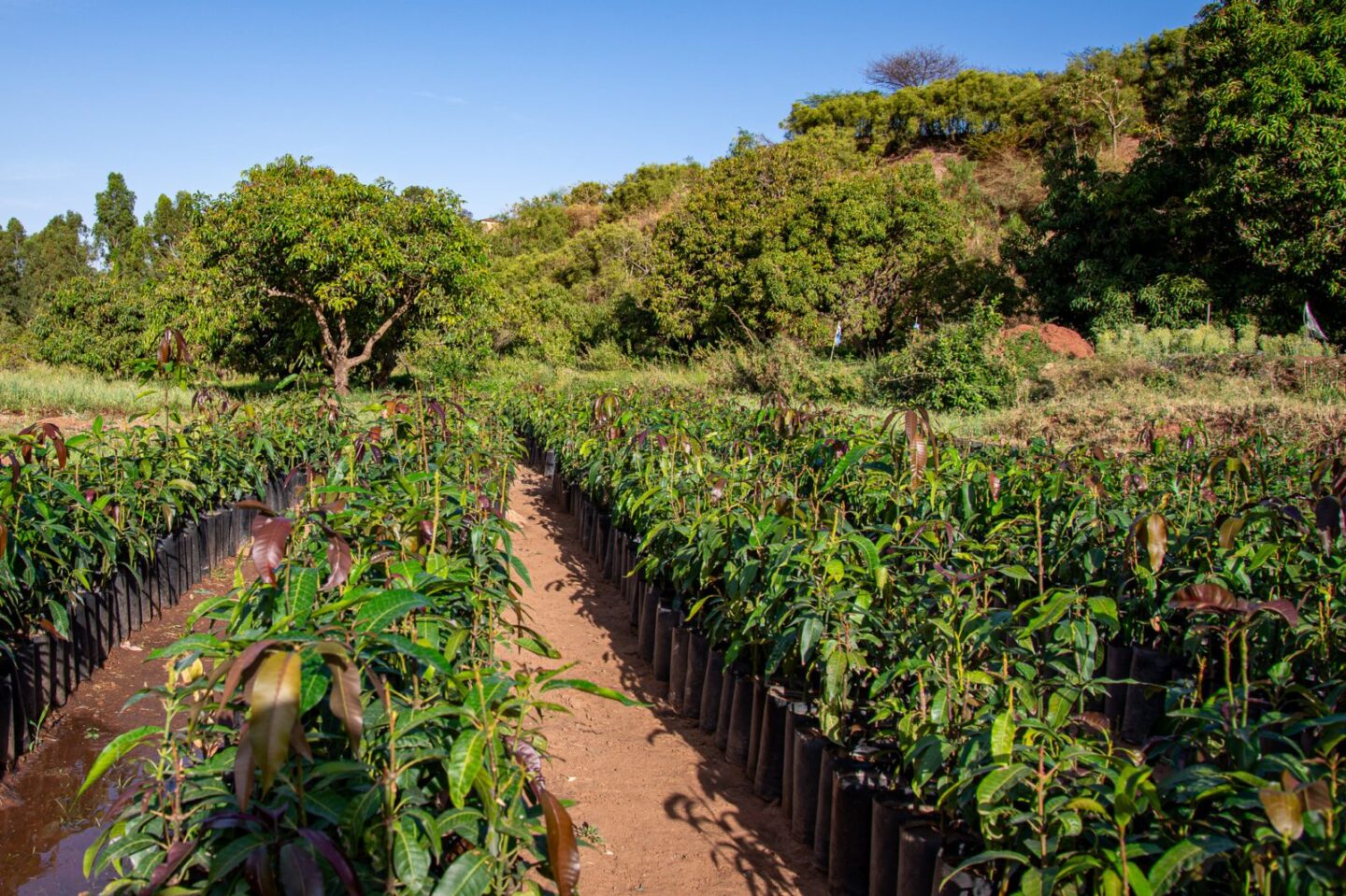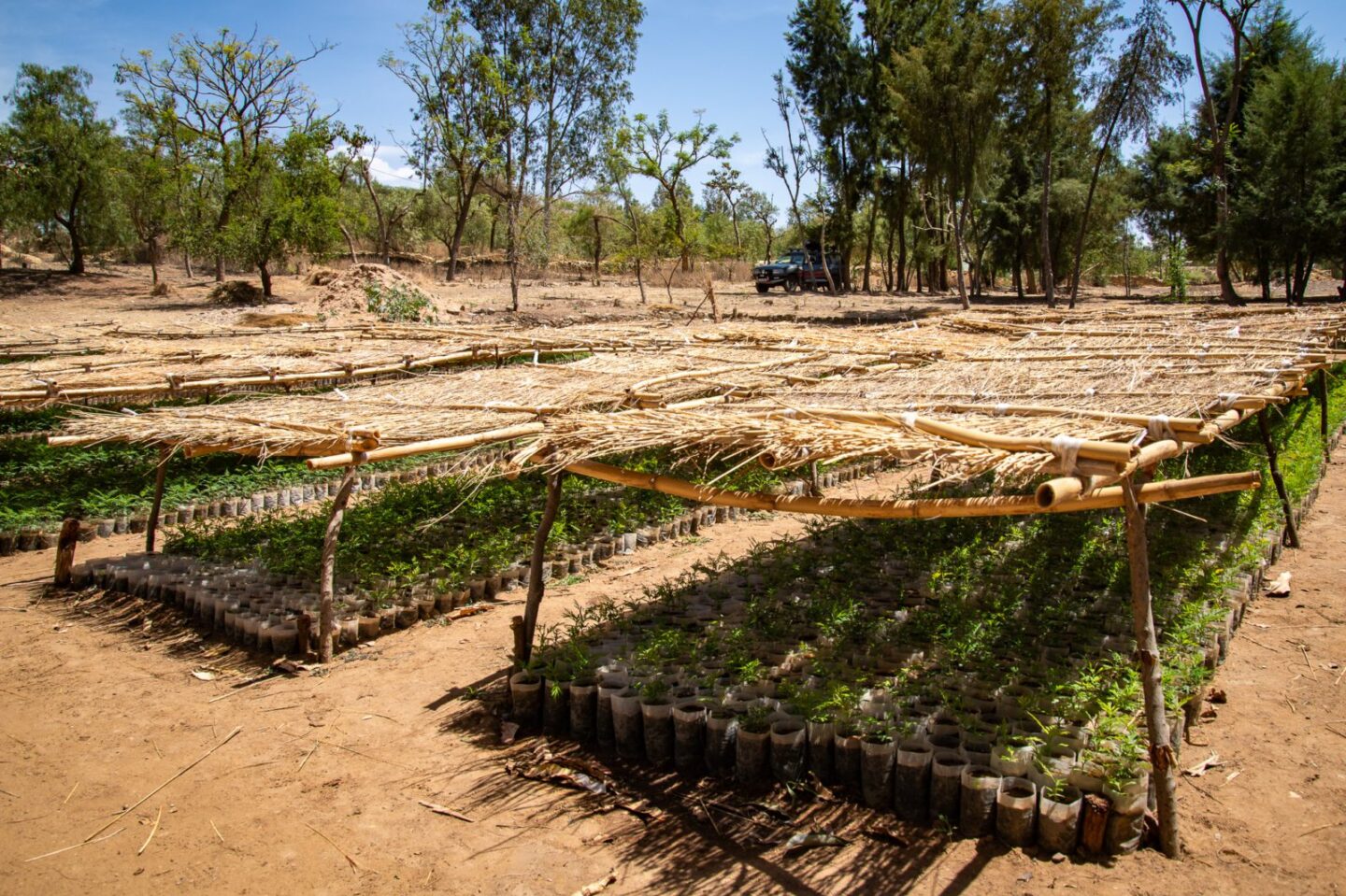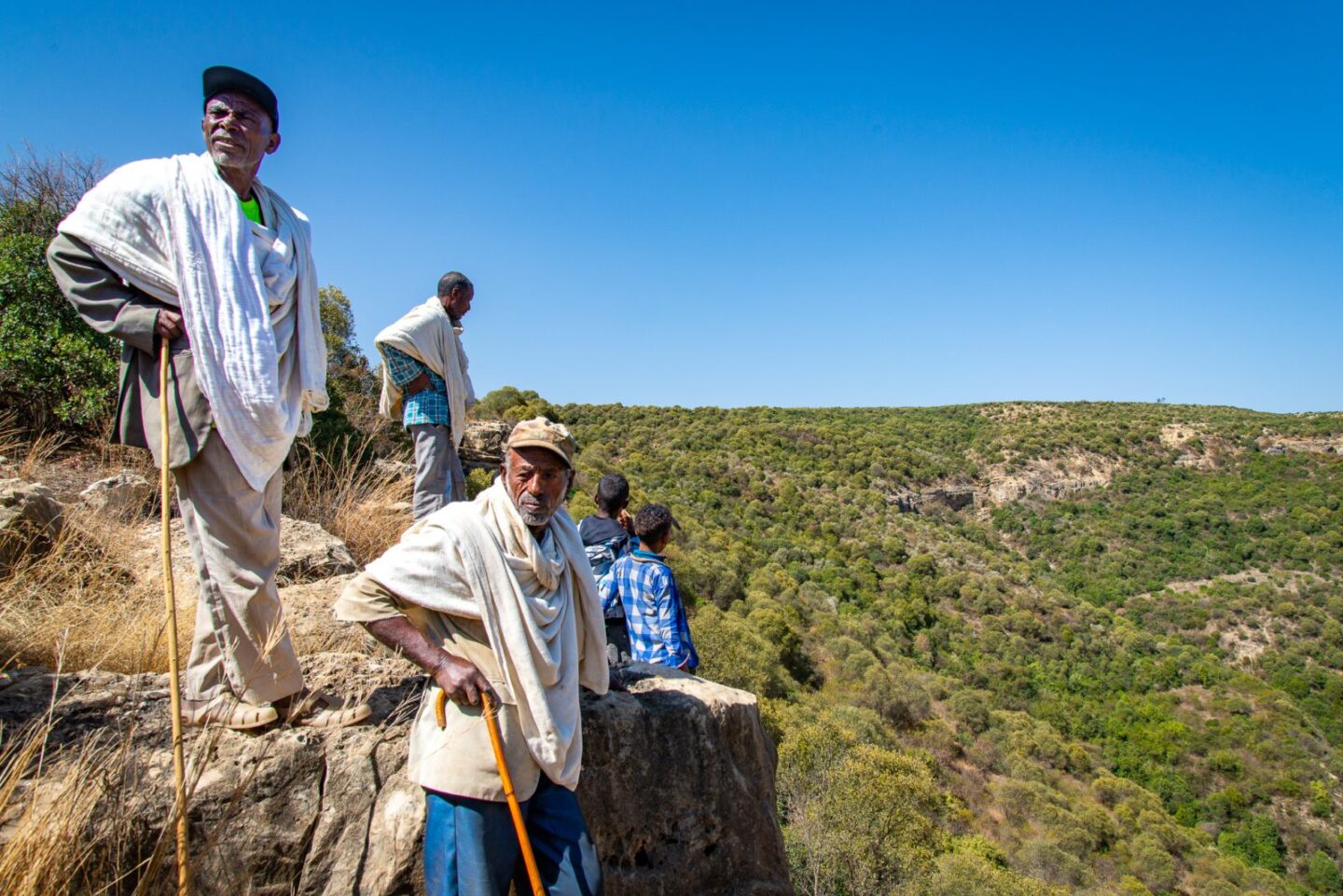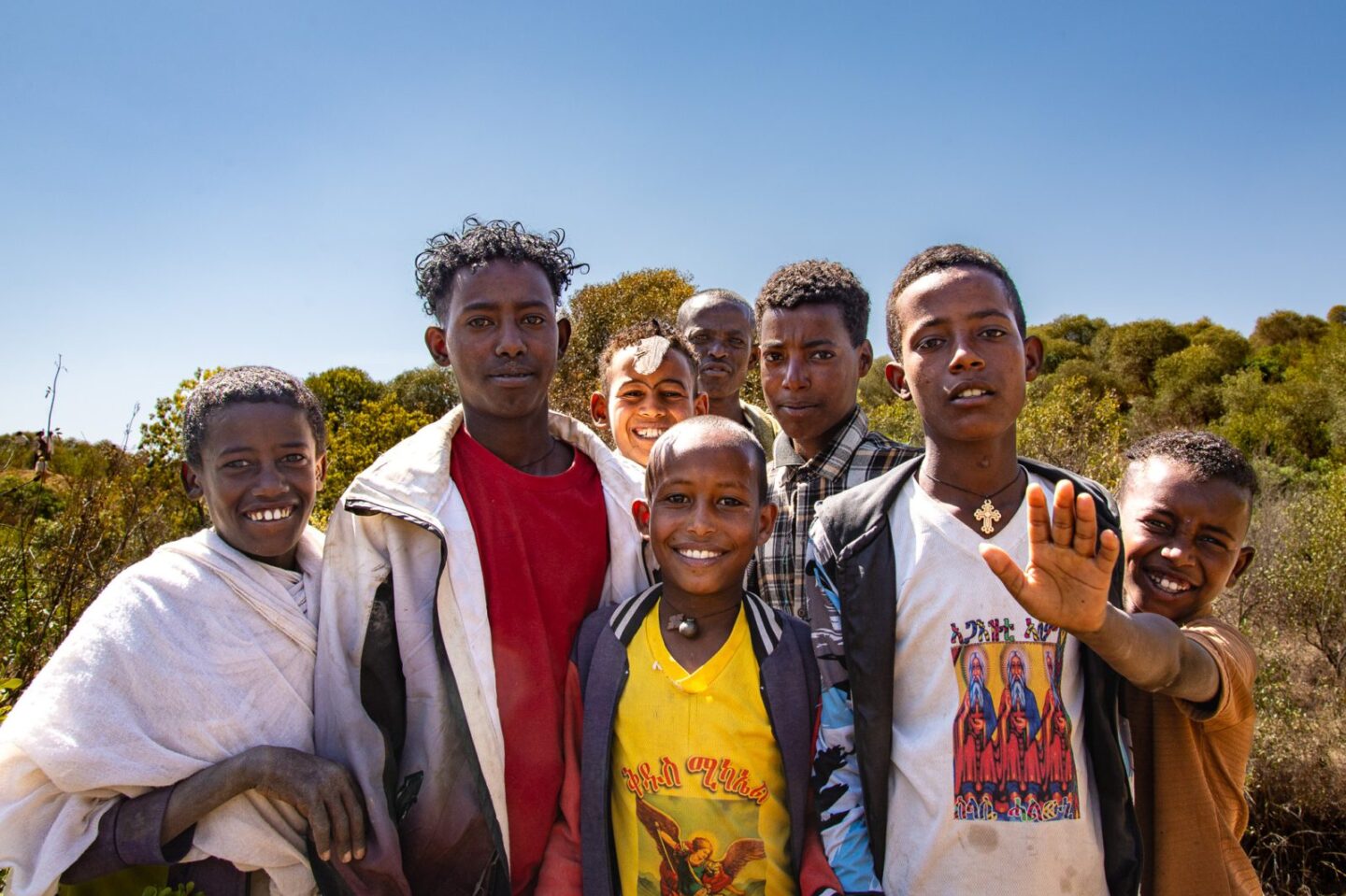Why this project is very necessary
The lack of fertile ground is a huge challenge in Tigray. Centuries of intensive farming have left the soil drier and drier and vulnerable to erosion. What is more, for agriculture people strongly depend on rain. Precipitation becomes ever more unpredictable as a result of climate change, such as increasing drought.
Because of the combination of degraded grounds and vulnerability towards climate change, people are strongly dependent on imported food. Add to this that in 2022 – 2022 the region was hit by civil war, one of the worst humanitarian disasters of our time. For a long time, Tigray was cut off from the outside world, which caused gigantic food scarcity.
Climate change, drought or future conflicts cannot be erased in the wink of an eye. But it is possible to make people in the region more efficient towards such circumstances. How? By enabling them to produce their own food in sustainable ways. And that is exactly what can be done by supporting the EthioTrees project!
